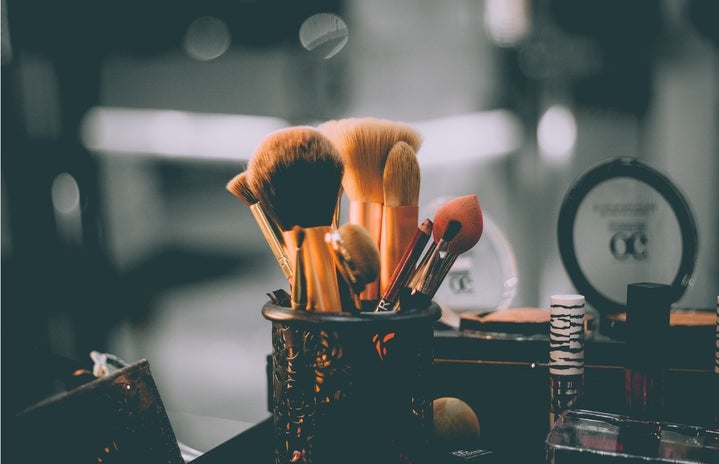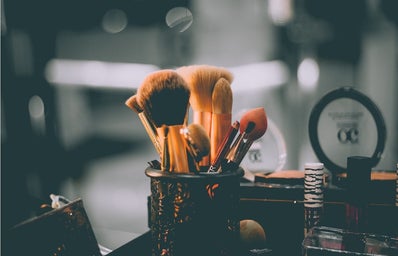We’ve spent countless hours scouring magazine pages and blogs and spending our money on beauty products, but flawless, glowing skin still eludes us. If you’re putting time and effort into your beauty routine but still not getting results, your skin care routine could be the culprit. Some experts say several practices we swear by for perfect skin are actually bad for us. We talked to some beauty experts to find out which skin care routines you should skip!
1. Exfoliating too often
Many collegiettes think exfoliation is the holy grail of glowing skin, but while skin with dirt and bacteria looks less than desirable, scrubbing away at your skin like it’s your dorm floor is not the answer. Exfoliating too often with microbeads or natural granules like sugar can actually injure your skin. This can lead to dryness and inflammation, destroying healthy cells and promoting skin hyperpigmentation while stripping away natural oils.
New-York-based esthetician Reneé Rouleau agrees with the American Board of Dermatology that you should exfoliate your face and body no more than once or twice a week. This allows you to remove the dead skin without those other harmful effects. Using a chemical exfoliator? Opt for products with beta hydroxy acids over those with alpha hydroxy acids in the list of ingredients, like DHC Salicylic Face Milk ($19); they sting and irritate less than the latter.
2. Putting acne medication all over your face
For the most of the month your skin is normal, but on the week around your period, Mother Nature gifts you with five humungous pimples. So on your way back from class, you pick up some acne products at the campus drugstore. But instead of applying your acne cream to your spots, you put it all over your face. Big no-no.
Aesthetician Lisa O’Neill Flanagan of NYR Organic says, “Acne medication should only be used on spots. It can actually dry out your skin (healthy parts) and cause overproduction of oil, which can, in turn, cause more breakouts.”
If you’re faced with irregular breakouts, Rouleau instead recommends light exfoliation (remember, just once or twice a week!) to remove dry skin cells, unclog pores and help fade those post-breakout marks. Disinfect the area with a natural astringent like witch hazel to eliminate bacteria and help prevent the spread of breakouts. Finish by hydrating with a water-based moisturizer to keep your skin cells healthy. We recommend Neutrogena’s Oil-Free Moisturizer SPF 35 ($11.99).
3. Slathering on thick eye creams
We know too well those eye cream commercials with the models dotting concoctions that look like yogurt under their eyes. Beauty companies are always updating their formulas to be thicker and supposedly more effective. But Rouleau says that “many heavy eye creams typically contain heavy oils, like mineral oil or petroleum [jelly].” These ingredients are not easily absorbed by the skin. They can sit on top of the skin, to an extent suffocating it, but companies use them because they provide a false sense of hydration. What you’re actually is feeling is grease, not moisture.
Flanagan says it’s never too early to start using eye creams, just opt for a lighter formula that sinks into the skin while still keeping it soft and moisturized. She says a good eye cream feels more like a serum, as the delicate skin around the eye area can’t tolerate an overabundance of creams. Try Neutrogena’s Rapid Wrinkle Repair Serum ($22.99).
4. Using your fingers as tools
Remember that absurd little brush that came with your cream eyeshadow? It turns out you should actually use it! Your fingers may seem more convenient for a quick swipe across your lids, but by doing so, you’re actually contaminating the product with the bacteria from your hands. Flanagan recommends using clean brushes to apply your eyeshadows and lip products that come in jars. Check out Ulta’s Large Eyeshadow Brush $14). The synthetic brush works well on both cream and powder shadows.
5. Using cleansing wipes instead of face wash
Reaching for your facial wipes after you come home from a party may seem like a better option than sleeping in your makeup. However, these wipes only remove some of the dirt and makeup from your face, leaving behind irritating residue that can clog your pores.
“It’s better to remove the makeup with a cleansing wipe than not to remove it at all, but it’s always best to cleanse,” Flanagan says. She recommends looking for a face wash with organic and natural ingredients that are gentle on your skin. Try the Neutrogena Naturals Purifying Facial Cleanser $7.99), which does not contain harsh chemicals.
6. Overloading on skin care products
Most collegiettes are beauty-product junkies, using creams and cleansers for acne, dry skin, hyperpigmentation and every other skin condition they can think of. But by over-treating your skin, you can run the risk of over-inflammation.
Forget about all those complicated serums and treatments! Flanagan suggests simplifying your routine to two steps: cleanse and moisturize. She also recommends trying a BB cream for an easy way to get everything your skin needs makeup-wise on a busy day. Try Maybelline’s Dream Fresh BB 8-in-1 Beauty Balm Skin Perfector ($8.99).
7. Washing your face in the morning
Cleansing your face may seem like a great way to start your day. But Dr. Jessica Krant, a dermatologist from New York, begs to differ. She says that while you’re sleeping, your skin regenerates, reestablishing its pH levels and increasing collagen production. Why would you want to wash off all this hard work?
Flanagan agrees that morning cleansing is unnecessary. “Just rinse with water in the shower or sink and, once again, moisturize!” she says.
On your journey to perfect skin, don’t give up hope. Stick to the basics, like a cleanser and moisturizer that are appropriate for your skin type. Consistency in applying your products and taking off your makeup is essential for getting your best results. It may be a matter of trial and error, but the combination of beauty practices for your best skin is out there!

